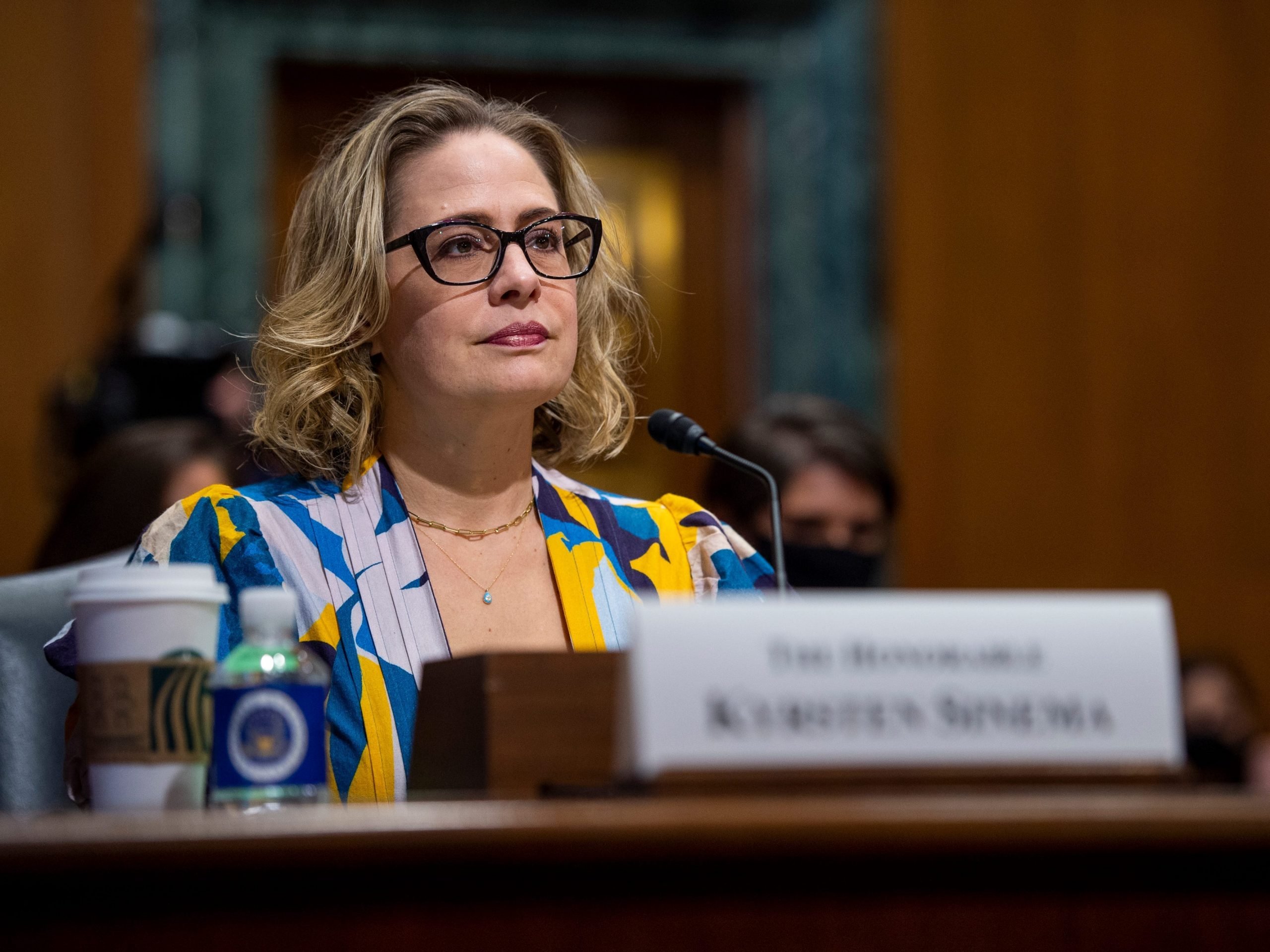
Photo by Rod Lamkey-Pool/Getty Images
- President Joe Biden signed a pledge Tuesday to significantly reduce US methane emissions.
- Sen. Joe Manchin called the methane emissions proposal "an unreasonable, punitive fee."
- Methane accounts for more than a quarter of the warming that Earth is currently experiencing.
Democrats are struggling to salvage climate change provisions in the Biden administration's Build Back Better agenda, including a proposed fee on methane emissions that Sen. Kyrsten Sinema, D-Ariz., is currently questioning and undecided on, Axios reported.
Additional members of Congress – Sen. Joe Manchin, Rep. Henry Cuellar, and multiple Texas Democrats – have outright opposed the fee, even as President Joe Biden joined more than 90 governments in signing a pledge to significantly reduce methane emissions at a global climate summit on Tuesday, according to Axios.
Sen. Tom Carper, D-Del., chairman of the Senate Committee on Environment and Public Works, has been fighting for the inclusion of a methane fee. He said in an interview with Roll Call that he has been negotiating with Manchin, who called the proposal "an unreasonable, punitive fee" on natural gas and oil companies in a September 7 letter to Carpel and Sen. Shelley Moore Capito, R-W.Va.
-Senator Tom Carper (@SenatorCarper) November 2, 2021
"We have designed it to not be punitive, but to be supportive and encouraging of companies to go ahead and begin making reductions within the next couple of years," Carper told Axios.
In 2019, methane accounted for about 10% of all US greenhouse gas emissions from human activities, such as leaks from natural gas systems and raising livestock, according to the Environmental Protection Agency.
Methane accounts for more than a quarter of the warming that Earth is currently experiencing and is the second-largest contributor to greenhouse gas emissions after carbon dioxide, The New York Times reported.
If a methane fee is passed in the US, it could spur decades-long economic growth, add $250 billion to the country's gross domestic product, and create more than 70,000 jobs by 2050, according to nonpartisan energy and climate policy firm Energy Innovation.
